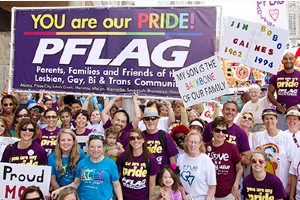
Our Stance
The Maine Department of Education supports all LGBTQ+ identifying, lesbian, gay, bisexual, transgender, gender expansive and questioning students, families, and school staff.
Ensuring Safety and Equity for Maine’s Students
Update Regarding Recent Federal Executive Order
In light of a new Executive Order issued yesterday at the Federal level, the Maine Department of Education (DOE) is providing the following clarifications for school administrative units (SAUs).
The Executive Order “Defending Women From Gender Ideology Extremism and Restoring Biological Truth to the Federal Government” applies to the Federal government/Federal government agencies only and does not inhibit the force of Maine law or locally-adopted school board policies.
Maine SAUs are expected to abide by the Maine Human Rights Act (MHRA), which prohibits discrimination on the basis of protected class in employment, housing, places of public accommodation, education, and extension of credit. Protected classes include: race, color, ancestry, national origin, sex, sexual orientation (which includes gender identity and expression), physical or mental disability, religion, age, and other categories in certain contexts. The MHRA also prohibits retaliation for asserting MHRA-protected rights.
- Maine’s LGBTQ+ Youth Make Up A Significant Percentage of Students
-
LGBTQ+ young people are a growing population of students in our schools. The 2019 Maine Integrated Health Youth Survey (“MIHYS”) shows that high school students identify as lesbian, gay, bisexual (LGB) or unsure at rates from 13.5% in Piscataquis County to 18% or over in Hancock, Oxford and Sagadahoc Counties. The proportion of young people identifying as transgender or unsure was at least 2.3% or more in 4 counties (Aroostook, Knox, Washington and York), 3% or more in 11 counties, and 4.5% in Waldo county.
*Note: MYIHS combined percentage data does not address students who are gender non-conforming, non-binary or are unsure of their sexuality or gender identity.
Download Infographic
Maine data from 2019 also show that these youth are bullied and/or harassed on school property more often than their non-LGBT peers (37% LGBT compared to 21% for all students). Research shows that this bullying and harassment is directly related to pervasive, negative cultural stigmas, historical oppression and stereotypes of their identity. The impact of bullying and harassment is compounded by increased levels of violence in peer relationships, family and community, as compared to levels experienced by their non-LGBT- identifying peers. As a result of these challenges, the MIHYS 2019 data also shows that LGBT students may report more anxiety, depression and mental health barriers than their peers.
*Note: MYIHS combined percentage data below does not include the percentage of students who identify as gender non-conforming, non-binary or are unsure of their sexuality or gender identity
- Maine Children and Youth Do Well With Support
-
Research has established that children and youth achieve more academically and socially when supported by their families and community and LGBTQ+ young people are as successful as their peers when they have the support that any young person needs. Being an LGBTQ+ young person is not itself a problem, but their experiences within their families and communities can be. In fact, every authoritative medical and mental health association throughout the world, recognizes as part of the normal spectrum of human experience any non-heterosexual sexual orientation or attraction, or a gender identity that is different from the sex assigned at birth.
Thanks to decades of scientific research, we now understand that an individual’s sexual orientation and gender identity develop at a young age and are not susceptible to change from coercion. Recognizing the traumatic history of LGBTQ+ youth experiencing "conversion therapy,” which tries to “change” a young person’s sexual orientation or gender identity, Maine legislators banned conversion therapy for minors in 2019.
The statistics and research demonstrate that many young people in Maine who are LGBTQ+ face headwinds at school that affect their education. The Maine Department of Education is committed to building awareness and understanding of the challenges these youth face and the need to create more positive learning environments for all students. As LGBTQ+ students are a growing population, and come from families representing the full diversity of Maine, including racial, indigenous, tribal and immigrant populations, the Maine DOE recognizes the urgent need for school policies, practices and guidelines that foster a supportive school culture that benefits all students so that each individual can thrive equally. These website resources provide concrete tools and action steps to build that positive, supportive, safe school culture.

Links to organizations and resources are for reference and information only and do not imply endorsement by the Maine Department of Education.
Links to organizations and resources are for reference and information only and do not imply endorsement by the
Maine Department of Education.


